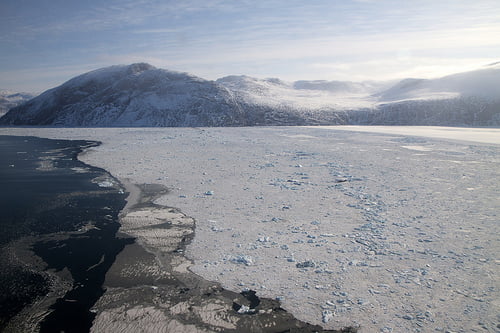

Environment
Arctic sea ice loses 36% volume in a decade
Arctic sea ice cover shrunk to its lowest ever point in August last year, but a team of researchers have found that the remaining ice also lost significant volume.
Studying a period between 2003 and 2012, scientists using NASA and European Space Agency data found that the size of the ice in the region declined by 36% in the autumn and 9% in the winter.
Average ice volume between 2003 and 2008 was 11,900 cubic km in the autumn months, but between 2010 and 2012, this dropped by over a third to 7,600 cubic km.
Meanwhile the 2003-2008 winter volume dropped by 9% between 2010 and 2012 – to 14,800 cubic km.
“While two years of [European Space Agency] data aren’t indicative of a long-term change, the lower ice thickness and volume in February and March 2012, compared with same period in 2011, may have contributed to the record minimum ice extent during the 2012 autumn”, said Professor Christian Haas of York University in Canada, a co-author of the study.
In December, the Arctic was found to have surpassed a number of records in 2012, including for sea ice loss, snow cover and Greenland ice sheet melting, according to the National Oceanic and Atmospheric Administration (NOAA).
This was after researchers at the National Snow and Ice Data Centre (NSIDC) in the US found that the Arctic sea ice cover was at its lowest ever point in August, which was followed shortly after by confirmation of further melting in the region.
University College London was one of a number of academic institutions to have also contributed to this latest study into the Arctic’s transformation.
Further reading:
Arctic shown to break several ice records as transformation in climate continues
Comprehensive study shows extent of ice loss increase
To tackle the melting Arctic is to tackle climate change itself


 Environment12 months ago
Environment12 months agoAre Polymer Banknotes: an Eco-Friendly Trend or a Groundswell?

 Features11 months ago
Features11 months agoEco-Friendly Cryptocurrencies: Sustainable Investment Choices

 Features12 months ago
Features12 months agoEco-Friendly Crypto Traders Must Find the Right Exchange

 Energy11 months ago
Energy11 months agoThe Growing Role of Solar Panels in Ireland’s Energy Future




























